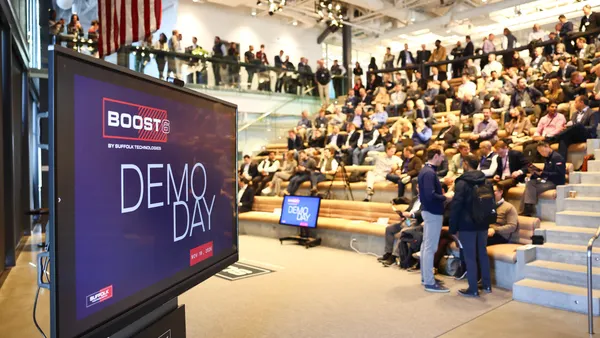Richard Kennedy has been with the U.S. division of global construction company Skanska AB for the last 15 years. Now CEO, president and part of the global management team that guides the company’s worldwide operations, he has the unique perspective of someone who has seen the industry move from Great Recession to robust recovery; from traditional delivery methods to cutting edge; and from business as usual to enterprising solutions that put more value on safety, diversity and inclusion — the directions in which Kennedy is steering Skanska USA.
"Richard is a strategic leader," said Skanska AB CEO Anders Danielsson, "with an extraordinary ability to connect vision, people and experience together to move our company forward in the right ways."
Kennedy said he was pleased to hear that Larry Fink, CEO of investment firm BlackRock, last year expressed the sentiment that companies need to focus on social responsibility as well as profits, but pointed out that Skanska has been espousing that philosophy for some time.
It's not enough to just say the words, though, Kennedy told Construction Dive. "We say them, and then we have to act on them."
This means leading by example, ditching arrogance, taking on construction projects that improve societies and even influencing customer choices when possible.
That's the way to build a sustainable company, he said. "You have to stand for something more than just quarterly and annual results."
But those results are still important to Skanska's success. At the end of 2018, Kennedy and the rest of the company's international leadership decided that Skanska USA would no longer pursue large public-private partnerships (P3s) in which it held an equity stake.
The decision came on the heels of a $100 million write-down in its P3 business and a still-unresolved $100 million change order on the $2.3 billion I-4 Ultimate project in Orlando, Florida.
Divesting engagement in certain segments of the P3 market, Kennedy said, was driven by the ballooning competition in the space and sometimes-unrealistic owner demands, although how Kennedy has handled some of those projects has won him praise from his partners, particularly from Jane Garvey, chairman of Meridiam North America, a member of LaGuardia Gateway Partners, which is the P3 building the $4 billion LaGuardia Airport Central Terminal B project.
"I've executed many deals in my career and I've found that true success can only happen when partners share a long-term vision," Garvey said. "Working with Richard on the PPP LGA Central Terminal Redevelopment project reflects that strong partnership. His leadership commitment to the project, the team, the community and all stakeholders has been clear and consistent from the very beginning."
"What I saw was that the competitive landscape had intensified in a way that pushed risk and

Richard Kennedy
Skanska USA
When Skanska started down the P3 path, it did so on the shoulders of very successful construction operations around the world. The company had big wins with these complicated and highly structured deals in Europe and South America, for example, Kennedy said.
Skanska’s first P3 in the United States, the Elizabeth River Tunnels project for the Virginia DOT, started in 2012 and completed in 2018, was also a success and will keep the company occupied there with operations and maintenance until 2070.
Following that project, though, the P3 market became flooded with competition, forcing bidders to tighten up on fees and allowing owners to push for more aggressive schedules, he added. "What I saw was that the competitive landscape had intensified in a way that pushed risk and reward out of bounds."
Kennedy isn't discounting the potential to return to the model at some point, but he said that it will take a while until public agencies are used to doing business that way. "Institutions don't necessarily change in line with the delivery method," he said.
It's worth noting that after Skanska announced its withdrawal from these complex megaprojects, other leading companies such as Granite and Fluor followed suit.
Kennedy described the path forward for Skanska USA on many fronts, from safety to how employees work with each other and view the company, as aspirational in many ways. "One of our statements is that we work safely or not at all, and we aspire to get to a place of zero accidents," he said.
Skanska USA also wants to give people an atmosphere in which employees can develop personally and professionally, Kennedy said, helped along by a policy of inclusion — the right people working together and communicating in the right way to develop solutions.
"I have worked with Richard for 11 years now at Skanska," said Cynthia Eng, the firm's chief communications officer. “He leaves a lasting impression to every function, team or project he leads. What I admire about Richard’s leadership is that he is consistently strategic and inclusive and he is changing the way we look at challenges and turn them into amazing opportunities.”
As a bonus, this approach to everyday work life has translated to lower employee turnover in a time when many contractors are finding it difficult to staff their operations.
"We really live our values as a company — being better together," he said. "I feel that everywhere I go in this company in a real way."


 Read more
Read more








